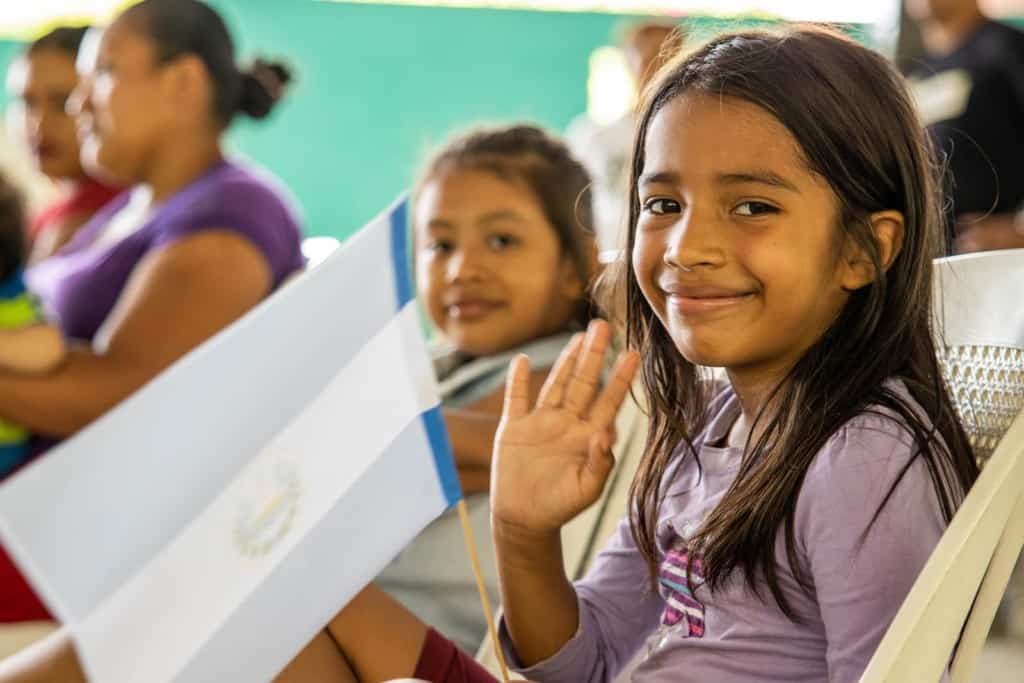
El Salvador traditions easily set the country apart from others. Who else has a national holiday in honor of pupusas? And what other country celebrates Christmas with huge fireworks displays and specializes in green coffee beans?
Let’s explore the incredible culture of El Salvador, the country where more than 70,000 Compassion-assisted children live, by learning more about El Salvador’s traditions and celebrations.
El Salvador Holidays and Celebrations
El Salvador traditions around holidays include both common and more unknown celebrations. But all Salvadoran holidays are celebrated in style!
Día de la Cruz
To start our list of El Salvador celebrations, we have Día de la Cruz or Day of the Cross. On May 3 every year, many Salvadorans decorate crosses with paper chains and display them prominently in their homes.
Offerings of fruit, candy, drinks, candles and other items surround these colorful crosses. Guests are invited to say a prayer of thanks in front of the cross and then take an offering.
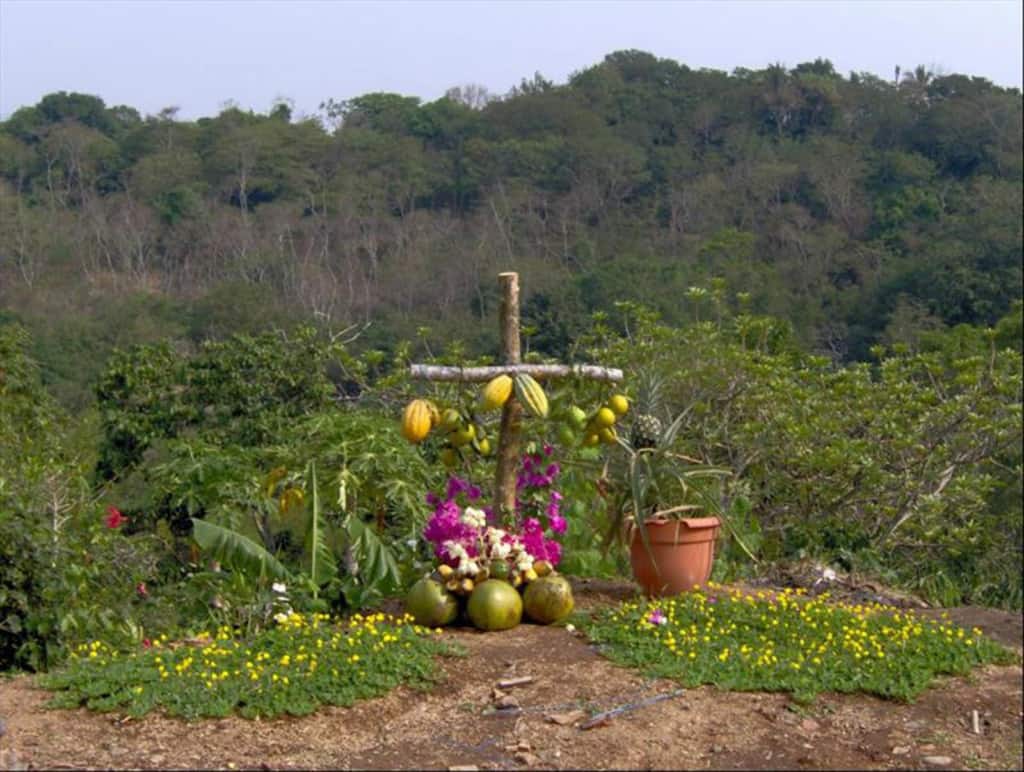
El Salvador celebrates its Independence Day on Sept. 15 along with Costa Rica, Guatemala, Honduras and Nicaragua. All five countries jointly declared independence from Spain on this day in 1821.
Several days before Sept. 15, a torch begins its journey by hand through all five countries to commemorate the event. On Sept. 15, El Salvador celebrates with parades and street celebrations, including a parade of children.
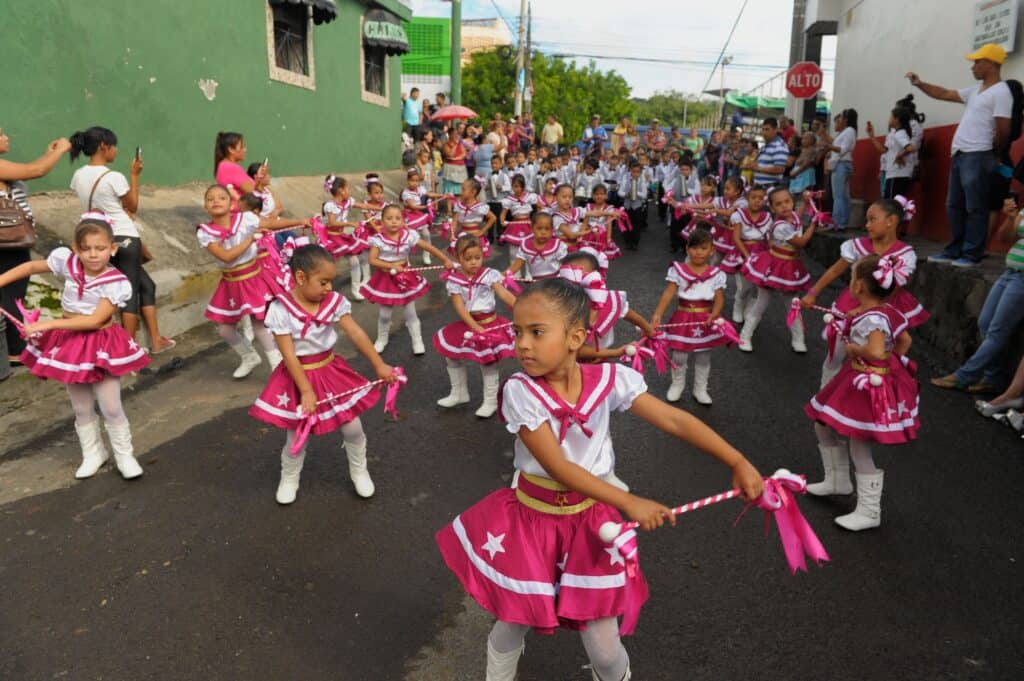
Carnival de San Miguel
From October to November, the city of San Miguel in El Salvador hosts a series of celebrations. They culminate in one big street festival that takes place on Nov. 21, called the Carnival de San Miguel.
The festival was created in honor of the patron of the city — the Virgen de la Paz or the Virgin Mary. It is now one of the most famous celebrations in Central America. Thousands travel to the city to experience the festive parades, popular musical performances and traditional dances.
Christmas
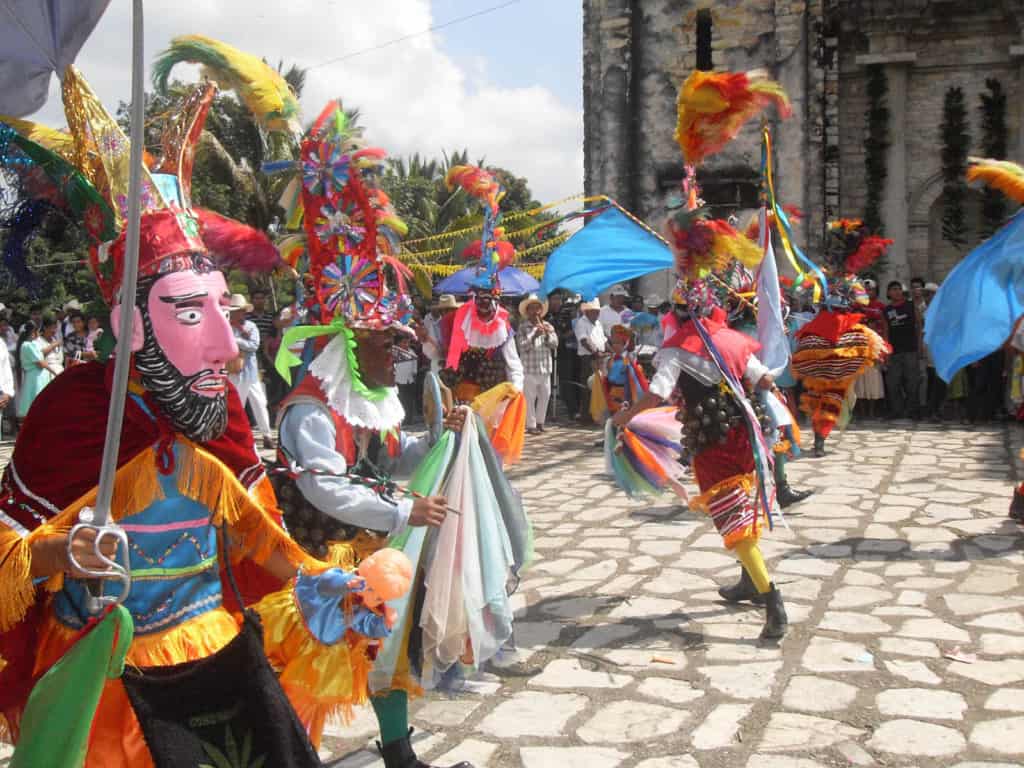
Christmas in El Salvador is heavily influenced by U.S. Christmas traditions, including fake trees and artificial snow. However, the country has its own traditions too!
Fireworks explode throughout Christmas Eve. Turkey, chicken and other Salvadorean traditional foods are enjoyed with family members. Of course, gifts are given for Christmas in El Salvador.
Quinceañera
El Salvador adds its own flavor to the quinceañera, the well-known Latin American coming-of-age tradition just for girls. Girls in El Salvador host a pink-themed fiesta rosa (rose party) on their 15th birthday. They often wear a beautiful pink dress because pink is traditionally a color of gratitude in El Salvador.
The color scheme shows the girl’s thankfulness to her parents and guests. Friends serve as attendants to the birthday girl, somewhat like bridesmaids, and guests give many presents.
The celebration may also include a religious service and the gift of a ring by the girl’s parents to signify her new status as an adult.
Easter
Easter is another tradition-filled time in El Salvador. The week of Easter is Holy Week, and the festivities revolve around Roman Catholic tradition.
Lent is one of the most important Easter traditions in El Salvador. And on Good Friday, there are two major processions. Early in the morning there is the “passion,” the representation of the walk Jesus took with the cross toward Golgotha.
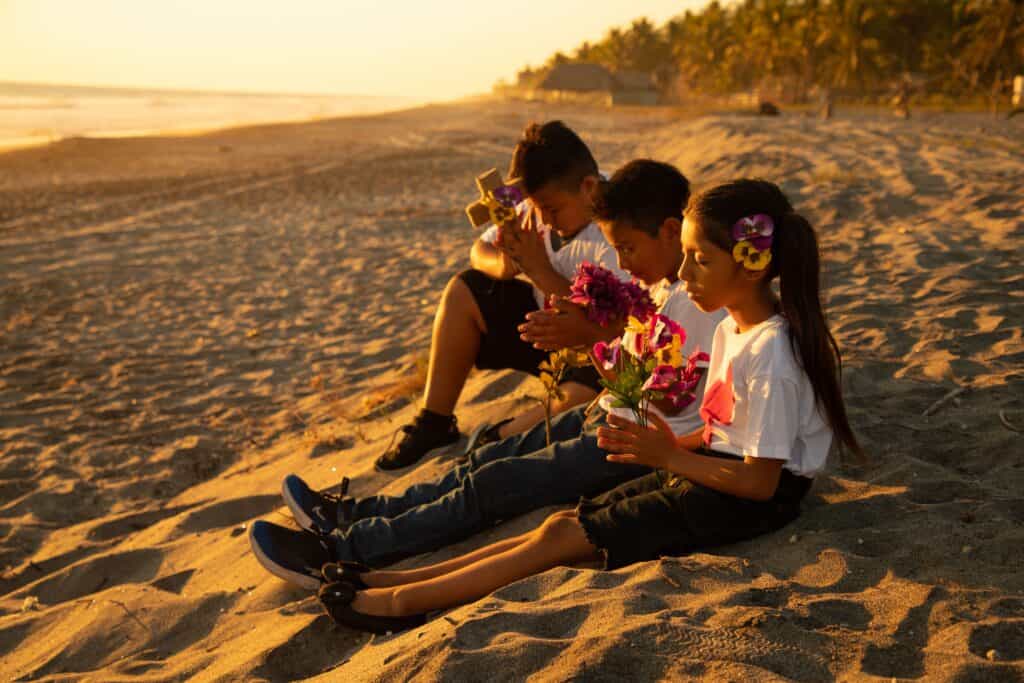
Traditional Food in El Salvador
Many interesting traditional foods are unique to El Salvador. Let’s dive into a few!
Pupusas
As the national dish of El Salvador, pupusas are so popular that the second Sunday in November is a nationwide holiday celebrating them: National Pupusa Day!
Pupusas are made by filling corn or rice flour pockets with meat, beans, cheese or other ingredients like vegetables. Some families in El Salvador do not have access to meat, so pupusas are often made with just beans and cheese, like in this recipe.
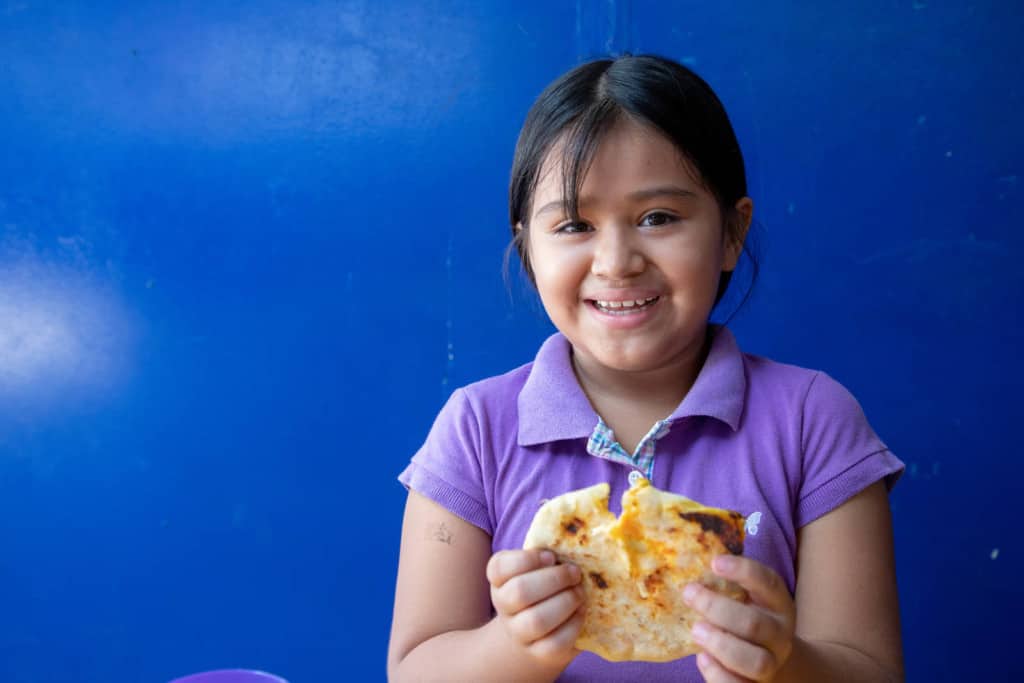
Quesadilla Salvadoreña
A traditional dish, this sweet, yellow cake is made from rice flour and includes many unique ingredients like ajonjoli (sesame seeds), queso duro blando (a semi-soft cheese), cuayada (milk curds), and crema salvadoreña (like sour cream). It is often sold by street vendors as a quick breakfast to be enjoyed with coffee.
Coffee
While this is not a unique food item in general, the Salvadoran specialty is green, or unroasted, coffee. Coffee in El Salvador is a tradition that extends back to the early 1800s, when it was first cultivated. It still makes up over 50% of exports from El Salvador.
Tamales
Popular in several Latin American countries, tamales vary in their fillings and what they’re wrapped in. Salvadoran tamales are made wrapped in banana leaves or corn husks. They tend to be milder in spice than Mexican tamales.
Salvadoran Arts and Crafts
El Salvador traditions include many stunning trades and products unique to the country.
Textiles
For over two centuries, weavers in El Salvador have created intricate scarves, blankets, purses and more on hand-powered wooden looms called telares.
These textile artists add each individual thread using a wooden instrument called a shuttle, which they push over the loom by hand. The vibrant colors they use make the final product a joy to see!
Hammocks
El Salvador is also known for its creation — and use — of hammocks. In fact, the capital of El Salvador, San Salvador, sits in what is known as El Valle de las Hamacas, or the Valley of the Hammocks.
The name references the earthquakes that rock the city like the sway of a hammock, and it also shows how familiar hammocks are in the country.
Hammocks are used constantly all over El Salvador, and the hammocks created in the country are known globally for their quality and beauty. They are traditionally hand-woven vertically between two poles and not made in a factory.
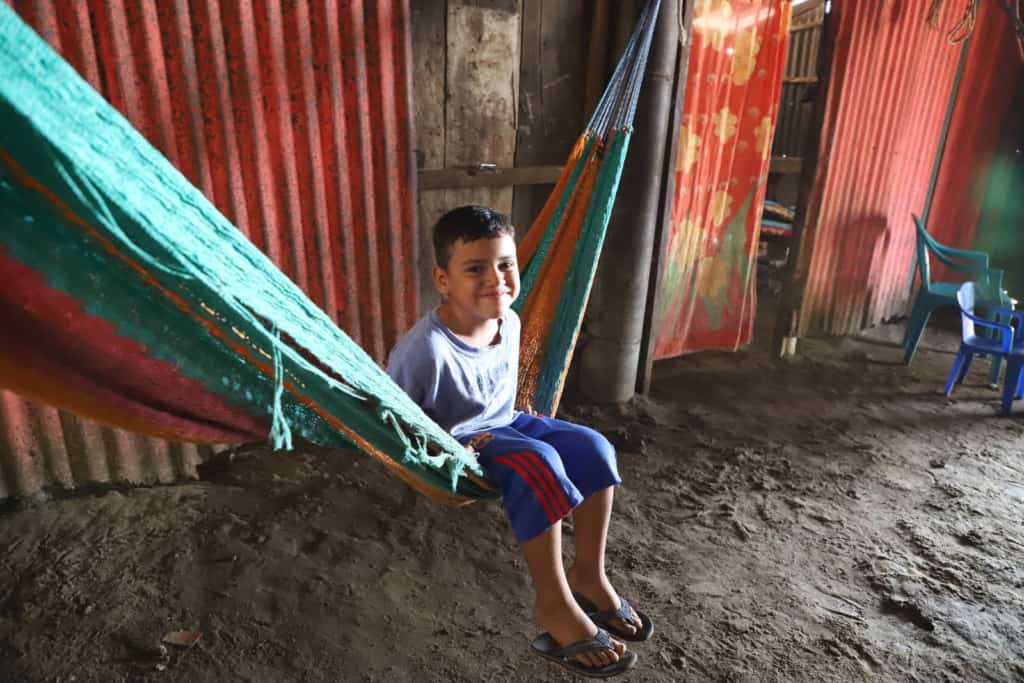
Pottery
El Salvador is renowned for its beautifully painted ceramics. Brought to El Salvador by Spanish settlers in the 18th century, the difficult technique is now passed down from generation to generation of artists.
The colorful and intricate designs in vases, wall decorations, animal representations and religious statues make them truly beautiful.
El Salvador: A Vibrant and Unique People
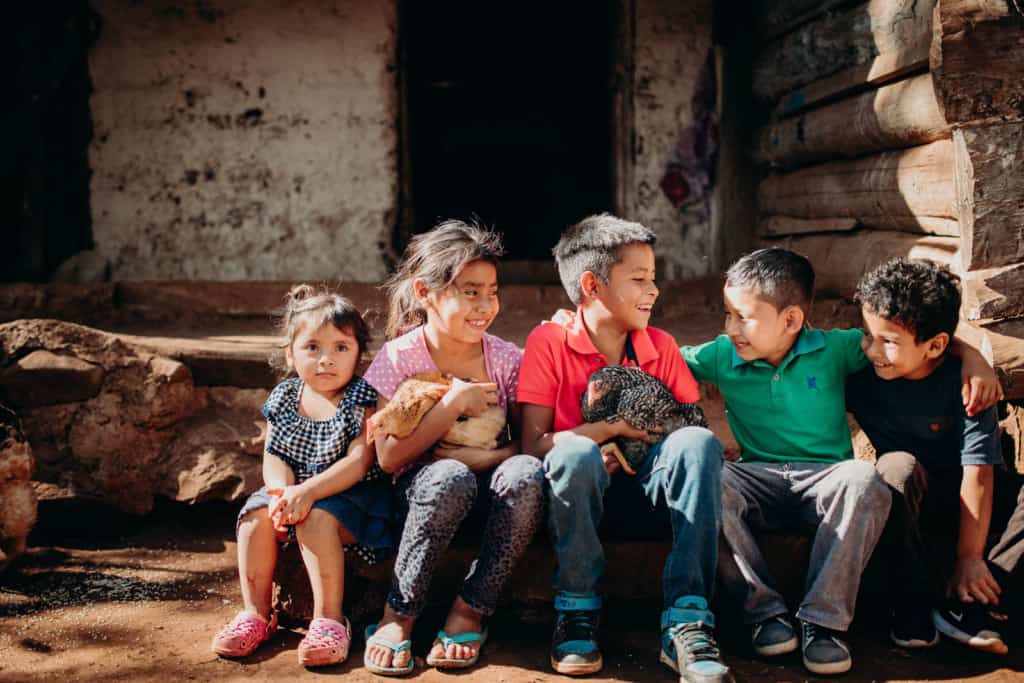
Thriving traditions specific to El Salvador wouldn’t exist without people who are just as unique. Compassion is honored to serve some of them! With 270 local church partners, Compassion currently ministers to over 70,000 children in El Salvador, helping to release them from poverty in Jesus’ name.
Would you like to join us in this mission? Learn more about sponsoring a child from El Salvador!

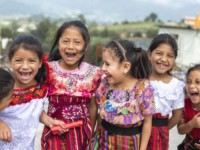


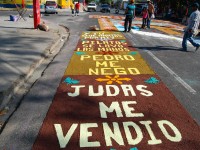


9 Comments |Add a comment
I sponsor a child in El Salvador who recently turned 18 years old. Can you advise at what age children in El Salvador age out of the Compassion sponsorship program? Thank you!
Hi, Robin. Thank you for reaching out. 😊 Generally speaking, each country decides the graduation age, and it looks like El Salvador’s is 22 years old. Please feel free to email us at [email protected], however, if you would like us to look at your specific child. We are happy to help. 💛
Hi, we sponsor a Child in El Salvador, but haven’t had any news since November last year. We are very worried. What is the current situation in El Salvador? Are children back in the projects or is life still restricted?
Hi Robin! Thank you so much for leaving us a comment letting us know your concerns. We are so sorry that it has been so long since you have heard from your precious kiddo. El Salvador is continuing to experience delays with letters. That being said, we would be happy to see if we can provide you an update about your child’s center and see if you have a letter on the way. If you would like us to assist you further, can you please send us an email at [email protected] with your sponsor ID number and the name of your child? Thanks so much! 💙
Hello,
Did not received e-mail, was there a title for the e-mail?
Rs
Selvin
Selvin, I am so sorry you didn’t receive the email! I’m looking into what might have happened, but I also wanted you to simply be aware that you can search for a child from El Salvador to sponsor directly on our website: https://www.compassion.com/sponsor_a_child/view-all-children.htm. There’s a search box on the right side of the screen where you can pick to see only children from El Salvador. More information on sponsorship and Compassion’s ministry are also available on the site. Please let me know if I can answer any specific questions for you. Our email address to contact us at is [email protected].
Hello
Want to learn more about sponsoring poor families in El Salvador…
Hi Selvin! I have sent you an email with additional information. We look forward to speaking with your further!
I wanted to say thank you for your very interesting and “colorful” descriptions of the holidays in El Salvador. So much information that we in the states do not know much about these customs but it isgood to know about them! I have really enjoyed the various postings that you have added to the Compassion website! I have a girl in Thailand. She is the third child I have had the honor of supporting and writing to! I enjoy writing to her very much. Thank you so much for giving us the opportunity to learn so much about all the countries that you are working in and supporting!! May God bless your ministry richly!! Sally Akehi